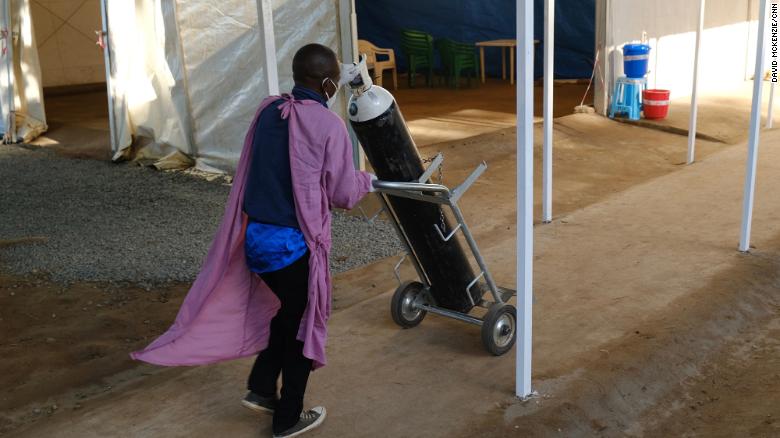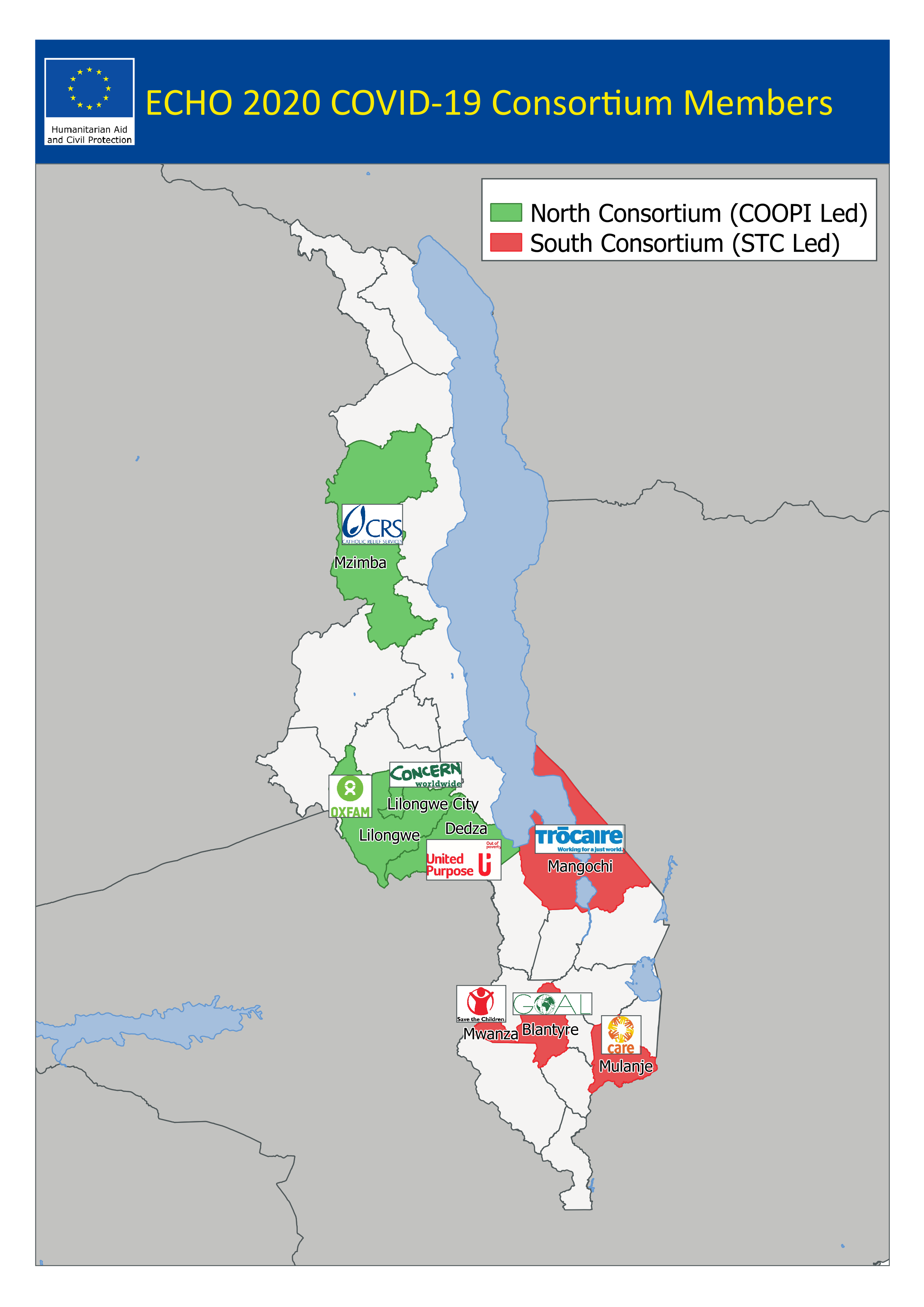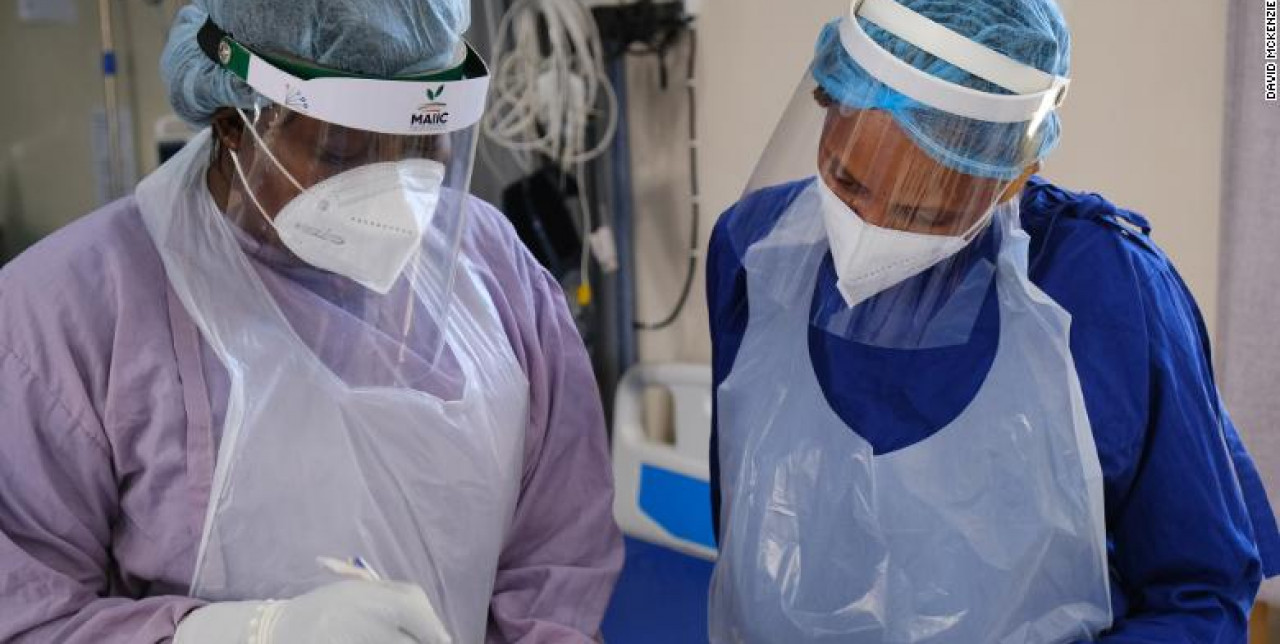10-02-2021 | di COOPI
Covid19. Malawi declared "State of Disaster"
If in 2020 Malawi, that is the fifth poorest country in the world, seemed to have successfully contained the spread of COVID-19, in the last period the African country has registered a significant increase in cases and deaths caused by the pandemic, revealing the fragility of its health system response. Indeed, the new and more contagious variant of the infection is spreading particularly in Southern Africa, hitting Malawi, Mozambique, Eswatini, Zambia and Zimbabwe particularly hard.
The data collected from December 9, 2020 to February 8, 2021 reveal that:
- the active cases increased from only 30 to more than 14,500;
- the total number of confirmed cases has more than quadrupled from 6,051 to 27,422;
- the total number of deaths rose from 186 to 874;
- the positivity rate increased from 1% to more than 22%.
The worsening of the epidemic did not spare even high-profile individuals, causing the death of two Ministers in the day of January 12, 2020 alone (the Minister of Local Government, Lingson Berekanyama and the Minister of Transport, Sidik Mia). Following their deaths, the President of Malawi, Lazarus Chakwera, announced a state of national emergency. Father Pino Giannini, a Combonian who has been present in Malawi for 35 years with a mission in Lisungui, also lost his life as a consequence of the Covid-19 infection.
Although these numbers may seem small compared to those of some European countries, they show the dramatic increase in the pandemic: 75% of all confirmed Covid-19 cases since March of last year were found in 2021, showing a sharp increase in infections and a decline in prevention; moreover, since the beginning of January 2021, 685 people died from Covid-19, meaning that more than 78% of all deaths occurred in the past 5 weeks; however, the numbers may actually be much higher, as some cemeteries are having difficulty keeping up with the demand for burial services. In addition, the country's capacity for testing is extremely limited and fluctuates, not even reaching 4,000 daily tests.

COOPI has been involved in the pandemic response in Malawi since March 2020. It currently leads a consortium of 5 international NGOs working in North-Central Malawi, supporting health facilities and frontline workers, in efforts to treat Covid-19 patients and prevent further infection in surrounding communities.
A sister consortium, of which COOPI is an active member and composed of four NGOs, is operating in the South of the country in the same manner. Both consortia are financed by the European Union Civil Protection and Humanitarian Aid Operations (ECHO) and implement in a concerted manner having shared goals and objectives. The 2 projects operate in 48 selected health facilities in 7 of the 28 districts of Malawi and serve 2.2 million people living in the catchment area of the facilities.

The activities of this project are implemented on several levels and include health, water and sanitation, disaster risk management. At the community level, one of the objectives is to improve the information available to the population and increase risk perception in order to prevent misbehaviour conducive to the spread of Covid19. At the same time, the consortium acts among healthcare personnel by training them on the management of the most severe cases, including those requiring non-invasive respiratory support. In health facilities, the project is also committed to improving water supply, sanitation and hygiene through a risk-based approach known as WASH FIT.
In agreement with the other members of the consortium, anticipating the request for aid launched by Malawi's Minister of Health on January 14, 2021, COOPI also decided to activate the "crisis modifier", an option to respond flexibly to emerging crises by activating additional funds. These resources are being used to procure additional medical supplies, equipment, and personal protective equipment to support and protect frontline health workers and ensure continuity of life-saving services for critical patients.
The most urgent effort is to secure hospitals by ensuring:
- personal protective equipment to healthcare personnel and workers involved in emergency management;
- personal protective equipment for cleaning staff and disinfecting materials for interiors;
- oxygen concentrators and cylinders to address the severe shortage in the supply of oxygen for critical patients;
- testing kits;
- water and sanitation supplies.
Hospitals in Malawi are stretched to the limit due to a surge in infection; the number of health workers becoming infected while caring for critically ill patients is increasing daily. To address this situation, the government has also decided to open field hospitals in the most affected areas, in the hope of being able to absorb the huge increase in the volume of critical cases.
Pictures ©CNN




 Malawi
Malawi